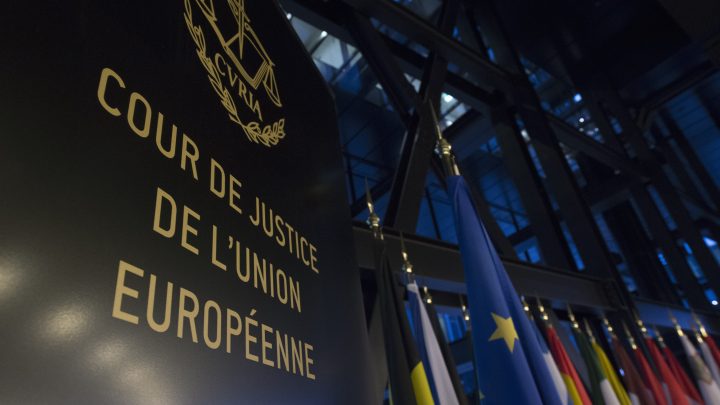
Has Europe’s highest court made it harder to sanction the assets of Russian oligarchs?
Has Europe’s highest court made it harder to sanction the assets of Russian oligarchs?

Russian oligarchs have lost an estimated $95 billion as a result of sanctions imposed by democratic governments since the invasion of Ukraine.
Superyachts have been impounded, mansions sequestered and other financial assets frozen. But those Russian losses may have just been stemmed in the European Union.
A recent decision by the bloc’s most powerful court — the European Court of Justice — curbed an important anti-money-laundering measure: a series of publicly accessible registers across the EU that record the identities of the real owners of property. The registers are designed to stop wealthy individuals from hiding their assets behind shell companies and nominees.
The case before the court involved Patrick Hansen, a wealthy businessman in Luxembourg, who objected to appearing in one of these registers on the grounds that it violated his privacy, revealed the scale of his wealth and exposed him to the danger of extortion and kidnapping. The European Court of Justice agreed. But another Luxembourg resident, Roman Borisovich, most certainly did not.
“Ownership of assets, ownership of wealth is a public matter. Privacy about personal matters is a separate issue. The transparency of assets has nothing to do with privacy,” said Borisovich, a former investment banker turned anti-money-laundering campaigner.
Privacy was especially irrelevant in this case, he said, because Hansen had divulged details of what he called his private life by flaunting his wealth and bragging about his travel arrangements on social media.
“This case should have been thrown out before even being considered — on that basis alone” insisted Borisovich.
Hansen did not respond to Marketplace’s request for an interview. But curiosity about his financial affairs does seem justified since it’s been revealed that his company received more than $100 million in loans from Russia and he is linked to numerous tax havens.
Mark Bou Mansour, head of communications for the campaign group Tax Justice Network, believes that the ruling by the European Court of Justice is a serious setback in the hunt for oligarchs’ assets.
“Russian oligarchs can more easily evade EU sanctions today than they were able to at the start of Russia’s invasion of Ukraine a year ago,” Bou Mansour said.
Since the court’s decision, more than half a dozen EU countries have closed to public scrutiny their registers of real or beneficial ownership, and more are likely to follow suit. Bou Mansour fears that the scope for sanctions-dodging, tax evasion and money-laundering in Europe has just been widened.
“Beneficial ownership registers, access to these beneficial ownerships — that’s one of the tools we have to start lifting the lid on this huge pile of wealth offshore and counteracting these secretive arrangements,” he said. “That’s now in jeopardy.”
A number of other campaign groups have denounced the court’s decision. Transparency International said it had set back the fight against cross-border corruption by years. The Organized Crime and Corruption Reporting Project said it had opened the floodgates to “dark” money.
But some keen supporters of financial transparency are less alarmed.
“It is certainly a setback. Not having open access to this data is an issue,” said Tom Keatinge, head of the Centre for Financial Crime and Security Studies in London. “But where I differ slightly from some critics is that I don’t believe it is the end of the world.”
Keatinge pointed out that law enforcement still has full access to real ownership details. What worried the court, he said, was the wide-open access to data in all cases for any member of the general public. The European Parliament and Council are now working on a new directive that will tighten definitions, taking the judgment into account.
“And that sets us a challenge: How do we ensure that that access is appropriate and proportionate?” he said. “And to be clear: I want to see open registers. But that’s where the challenge lies, making this access proportionate.”
But any restriction at all on public access to a beneficial ownership register is anathema to Borisovich, who supports total openness when it comes to the ownership of assets of significant size.
“It’s because of the public scrutiny, it’s because of the media, it’s because of the activists, it’s because of civil society, this is what has been driving this campaign for transparency and for anti-money-laundering,” he said.
Borisovich maintained that underfunded western law enforcement agencies need help from the public. Especially, it would seem, since official enthusiasm for the hunt for kleptocrats’ assets may be waning. In its gloomy assessment one year after the invasion of Ukraine, Transparency International said that governments must get more serious about targeting the illicit wealth stashed within their borders.
There’s a lot happening in the world. Through it all, Marketplace is here for you.
You rely on Marketplace to break down the world’s events and tell you how it affects you in a fact-based, approachable way. We rely on your financial support to keep making that possible.
Your donation today powers the independent journalism that you rely on. For just $5/month, you can help sustain Marketplace so we can keep reporting on the things that matter to you.












